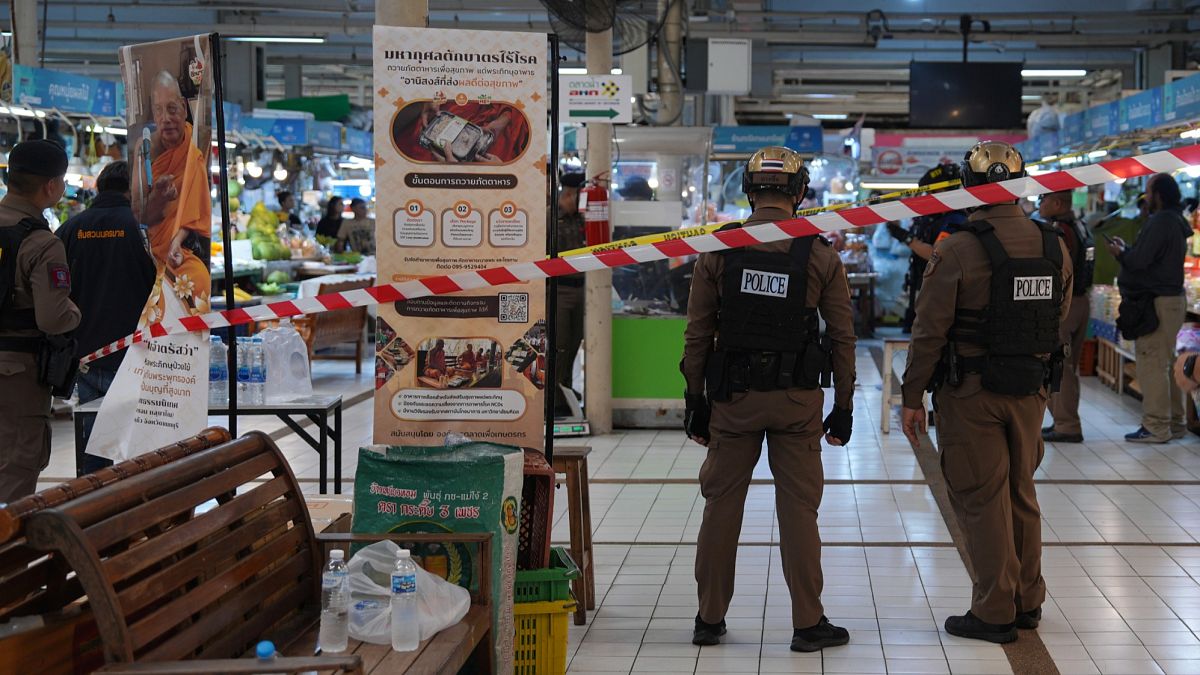

In the midst of an array of global conflicts, recent events have drawn attention to the critical need for peaceful resolutions and humanitarian assistance. While the world grapples with these challenges, efforts to maintain support and aid are ongoing.
Bangkok faced tragedy when a shooting at the Or Tor Kor market resulted in the deaths of five individuals, including security personnel. The perpetrator, who also injured two others, ultimately took his own life. Local authorities are delving into the circumstances surrounding the attack, emphasizing the importance of security measures and community support amidst such events.
Across the globe, Ukraine continues to experience the ripple effects of conflict as a Russian air strike on Kyiv left eight people injured, including a child. The attack caused structural damage, disrupting the lives of many residents, but fortunately, no fires ensued. Ukraine is also witnessing an uptick in combat engagements along the front lines, reflecting ongoing regional tensions.
In the Middle East, the Gaza Strip confronts a severe humanitarian crisis, exacerbated by limited access to essential provisions. Israeli authorities have initiated ten-hour tactical pauses in certain areas, intended to increase the flow of aid. Despite these efforts, Palestinian communities report that aid is insufficient, with the United Nations calling for substantial humanitarian intervention to prevent further health crises. Jordan and the United Arab Emirates have stepped up contributions with recent airdrops of aid, yet these efforts remain but a fraction of what is needed.
Meanwhile, Israel’s promise of humanitarian corridors offers a glimmer of hope, though continued combat operations create an environment of uncertainty and fear for many on the ground. The World Food Programme estimates that 90,000 women and children urgently require nutritional treatment, highlighting the dire circumstances faced by civilians.
In Europe, Albania and Bulgaria have reached out to the European Union for assistance in managing devastating wildfires that have destroyed vast expanses of land and numerous homes. Such environmental crises underscore the growing importance of collaborative approaches in addressing climate impacts and safeguarding communities.
Globally, a recent study has shed light on a concerning trend in democratic engagement, with Europeans reportedly feeling apathetic towards democratic systems. This sentiment reflects a broader discourse on the importance of upholding democratic values and ensuring that governance remains responsive to the needs and aspirations of the populace.
Finally, the United Kingdom’s Prime Minister, Keir Starmer, plans to convene an emergency cabinet meeting to discuss the escalating Gaza crisis. The meeting coincides with an anticipated dialogue with U.S. President Donald Trump, where Starmer is expected to advocate for renewed ceasefire talks and a reinforced diplomatic stance on the conflict.
As these situations unfold, the international community continues to strive for peace and stability through dialogue and coordinated humanitarian efforts. The challenges posed by each of these crises serve as reminders of the interconnectedness of our world and the shared responsibility to foster environments conducive to peace and prosperity.
Source: {link}
